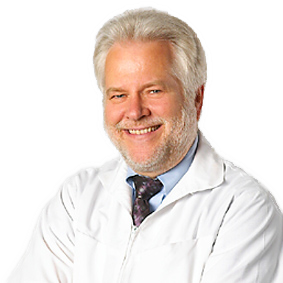
In the world of nutritional therapy, you quickly learn a hard truth: drug companies can say almost anything once a product is approved, while nutritional companies can barely say anything at all — even when the evidence is solid.
The imbalance is so extreme that, at times, the federal government has treated scientific information itself as a controlled substance.
As strange as that sounds, it has happened — and the 1992 armed raid on a nutrition clinic is one of the clearest examples.
The Day the FDA Treated a Nutritional Study Like a Criminal Substance
On May 6, 1992, the offices of Dr. Jonathan Wright, a Harvard-educated physician associated with the Life Extension Foundation, were stormed by FDA agents and local law enforcement.
Not because the clinic harmed patients.
Not because of mislabeled supplements.
Not because of contaminated stock.
The “crime” was distributing a published scientific study on folic acid.
The study described how folic acid supports normal neural-tube development in embryos — research that today is universally accepted and recommended by every OB/GYN in America.
But at the time, because the Life Extension Foundation also sold folic acid supplements, the FDA claimed that sending out a peer-reviewed study amounted to an illegal “disease claim.”
The result was surreal:
- Agents confiscated patient files
- Seized supplements and medical equipment
- Treated the clinic like a narcotics bust
- Criminalized the act of sharing science
This episode became a defining moment in the movement to reform supplement laws and protect freedom of health information.
Why Sharing Science is Treated as a Crime in the Supplement Industry
Under the Dietary Supplement Health and Education Act (DSHEA), nutritional companies are legally forbidden from claiming that:
- a vitamin
- a herb
- a nutrient
- a natural compound
can treat, cure, diagnose, or prevent any specific disease.
It does not matter if:
- the claim is true
- the claim is backed by peer-reviewed research
- the claim is already accepted by mainstream science
If a supplement company even quotes a medical journal in a way the FDA interprets as implying disease treatment, it becomes a regulatory offense.
Drug companies, by contrast, can advertise directly to the public and make sweeping statements of efficacy — even when the drug barely outperforms a placebo.
This is the core constitutional issue: truthful scientific information should not be illegal speech.
The Placebo Problem: When Approved Drugs Barely Work Better Than Sugar Pills
The irony deepens when you look at how many pharmaceuticals reach the market with very small advantages over placebo.
In some drug classes — psychiatric medications especially — the difference between the drug and placebo is sometimes so small that only statistical gymnastics reveal significance.
Some examples:
- In antidepressant trials, up to 85% of participants show no clinically meaningful difference between the drug and the placebo.
- Pain medications, cough suppressants, and certain gastrointestinal drugs often perform only marginally better than placebo, according to large meta-analyses.
- The placebo effect itself has grown stronger over the last decades, making it harder for new drugs to beat it.
And yet, once a drug has its approval stamp, the marketing machine rolls ahead full force.
Commercials proclaim:
- “Clinically proven”
- “Effective relief”
- “Demonstrated results”
even when the improvement is statistically detectable but practically small.
Nutritional companies, meanwhile, cannot legally say:
- “Vitamin C supports immune function during seasonal stress,”
- “Omega-3 fatty acids promote cardiovascular health,”
- or even “folic acid supports fetal neural development”
unless phrased through extremely narrow, FDA-approved structure-function language.
The irony is hard to miss.
A Regulatory Double Standard With Real Consequences
The end result is a system where:
1. Pharmaceutical companies can advertise aggressively
—even when the drug only modestly outperforms placebo.
2. Nutritional companies must censor scientific truth
—even when the evidence is peer-reviewed, well-established, or part of standard medical practice.
3. Practitioners who rely on nutritional science must walk a legal tightrope
to avoid “unapproved claims,” even when their advice is safer than available drugs.
4. Consumers end up hearing only one side
because the other side is legally prohibited from speaking.
The 1992 raid was not an isolated mistake but a symptom of a larger problem: a regulatory philosophy that treats natural health information as a threat rather than an asset.
The Real Issue: Who Controls Health Knowledge?
This isn’t ultimately about vitamins vs. drugs.
It’s about whether free citizens have the right to:
- read nutritional research
- hear about scientific discoveries
- consider alternatives
- make informed decisions about their own bodies
When government agencies treat information as contraband, it raises profound questions about free speech — especially when the information is true, peer-reviewed, and harmless.
The Life Extension raid was a reminder that the struggle is not merely about supplements; it's about who owns scientific knowledge — the public, or the state?
Conclusion: Toward an Honest Conversation About Healing
If a drug barely beats placebo, consumers deserve to know that.
If a nutrient has proven benefits, companies deserve the right to state that.
If published science exists, citizens deserve the right to read it without gatekeepers.
The purpose of health regulation should be to protect consumers from harm — not to protect one industry’s profits, nor to suppress truthful speech.
The goal is simple:
- Honesty in pharmaceutical marketing
- Freedom in nutritional communication
- A level playing field where placebo effect, natural therapies, and pharmaceuticals can all be evaluated openly
The future of healthcare depends on something deeper than regulation — it depends on trust, and trust can only exist where truth is allowed to be spoken.

